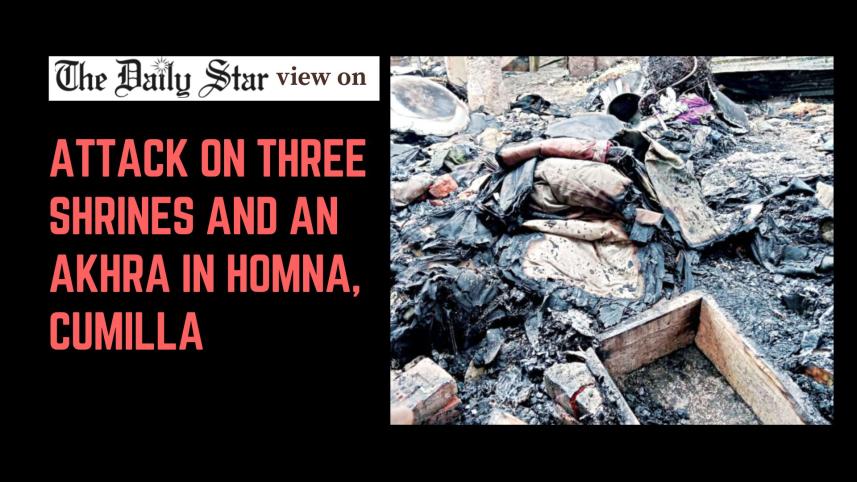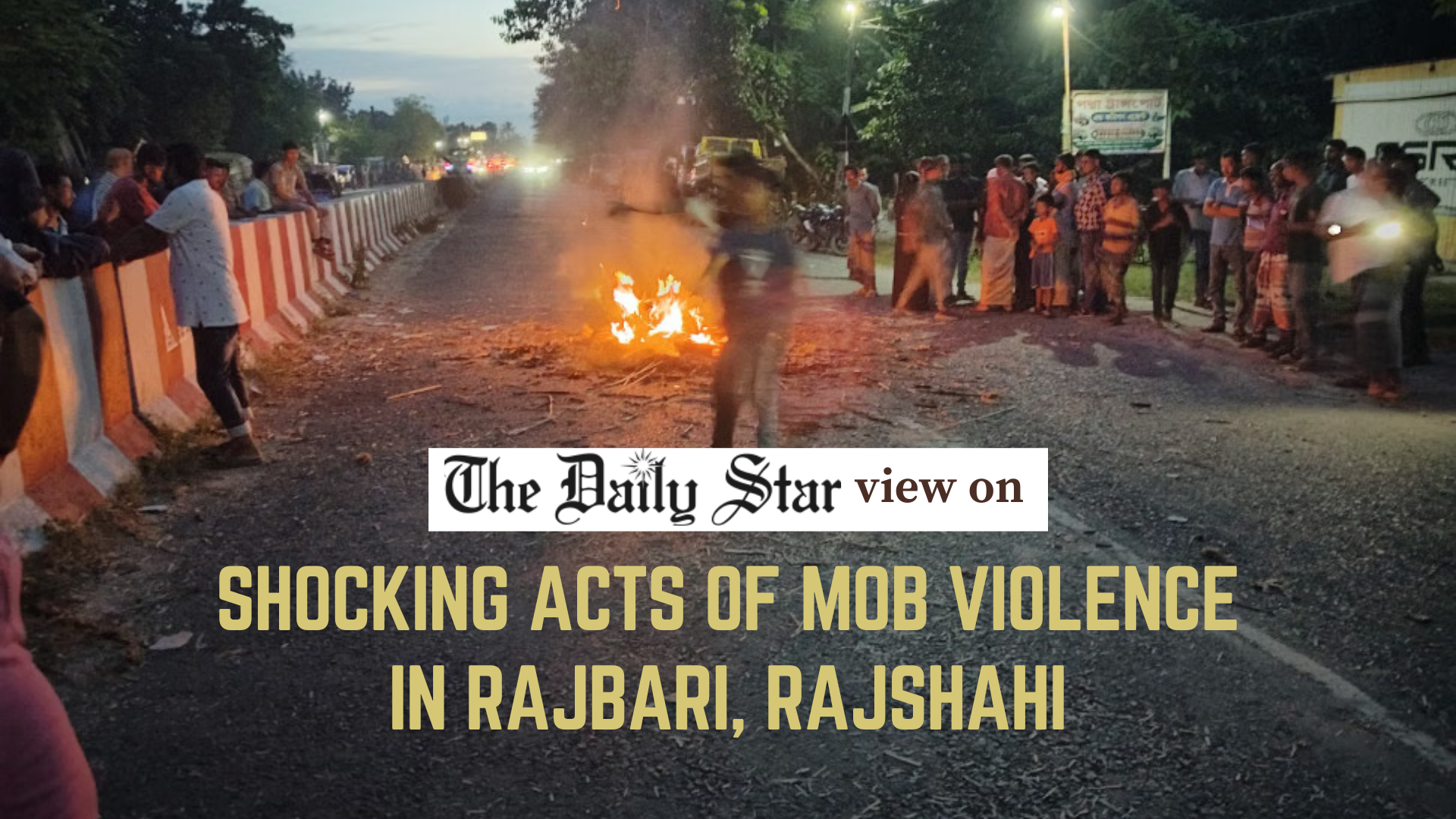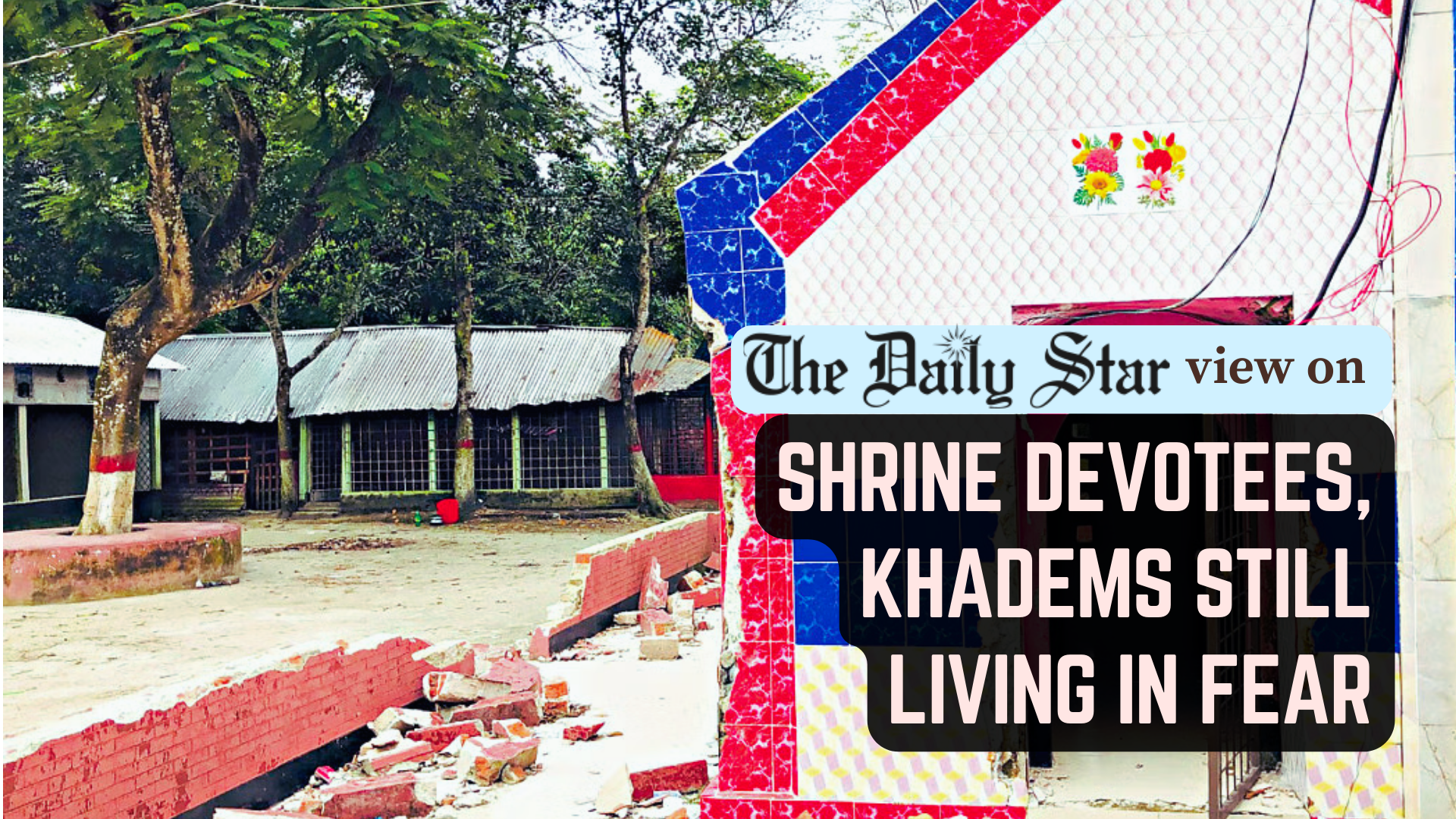When will we see effective govt action?

Yet again we are witnessing attacks on shrines, this time in Cumilla's Homna upazila, raising urgent questions about whether the government is really doing anything to ensure peaceful co-existence of people of different belief systems in the country. Since August last year, numerous such attacks have occurred, often without any provocation, and statements from the government have done little to prevent them. Instead, anonymous attackers, who often act under the banner of an aggrieved religious group—"Tawhidi Janata,"— which opposes Bangladesh's centuries-old shrine-Sufi culture, seem to be gaining confidence.
Earlier this month, a similar group not only vandalised a shrine and attacked the followers of a self-proclaimed spiritual figure, but exhumed his body and set it on fire on a highway. Though several arrests followed, attacks on four more spiritual sites on Thursday show that reactive arrests are not enough to deter such violence.
Worryingly, legal actions intended to respond to these groups' grievances are also proving ineffective. This was evident in Homna. On Wednesday morning, police detained a man linked to one of the shrines after locals protested a religiously offensive social media post. But the next morning, a group appeared outside his home, using loudspeakers to rally a crowd. Within an hour, they vandalised two shrines and burned down another shrine and an akhra. Since the custodians of three of these sites had no link to Wednesday's incident, local villagers and followers are asking what really motivated the attacks. The use of loudspeakers suggests the violence was premeditated, setting a troubling precedent.
In this context, it's time law enforcement and intelligence units adopted pre-emptive strategies, rather than only reacting after the damage is done. While police acted swiftly on Wednesday, with the rise in mob violence by fringe groups, a continued security presence in the area was needed, given the sensitivity of the circumstances. More broadly, the government must take a stronger stance against far-right ideologies that threaten the country's pluralistic fabric.Shrines, mazars, and darbars have been part of our religious heritage for centuries. While many may not agree with their mode of worship, such differences in practice cannot justify violence. Grievances—real or perceived—must be addressed through legal means, and this standard should apply equally to all faiths.
Our constitution guarantees every religious community the right to "establish, maintain and manage its religious institutions," subject to "public order, law and morality." The government, which took oath under this constitution on August 8, 2024, must uphold these rights for all. We also urge the government to ensure protection of the family members and followers of the shrines' spiritual leaders, who are scared to return to their homes after Thursday's incident. Besides, with major religious festivals approaching, security must be strengthened to ensure that no community is intimidated by the self-appointed moral police who, in the absence of stern state action, have come to believe they are above the law.



 For all latest news, follow The Daily Star's Google News channel.
For all latest news, follow The Daily Star's Google News channel. 

Comments